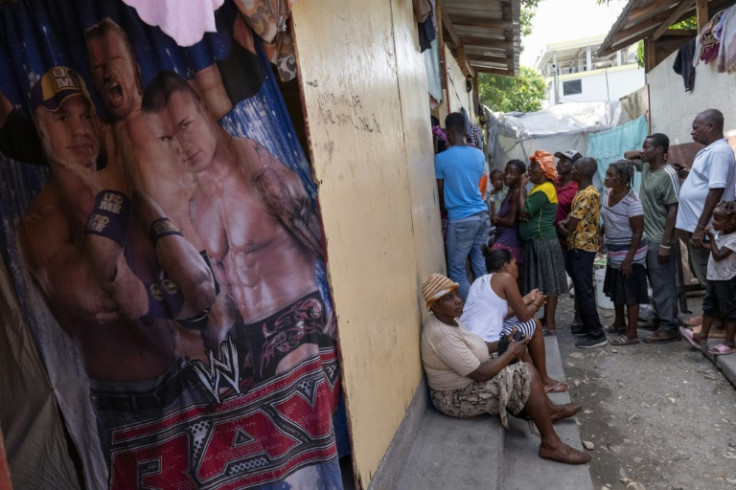
Gang violence in Haiti has paralyzed the country. Port-au-Prince's airport is closed and roads to the capital are practically impossible to transit through. Yet, U.S. deportation flights are continuing, with a chartered flight bringing 70 Haitians back to the country on Tuesday. It is the first deportation since gang attacks led U.S. authorities to halt all air travel to the country. These flights, however, landed in Cap-Haïtien, Haiti's second-largest city and the only one with a still-operating airport.
Haitian authorities continue to struggle with ever-escalating violence, which has forced 50,000 people to flee their homes in the past two weeks alone. With domestic flights grounded and sea travel unsafe, Cap-Haïtien remains Haiti's only viable entry point for international commercial air travel.
The U.S. Immigration and Customs Enforcement (ICE) chartered the flight despite warnings from human rights groups and the United Nations, which have criticized the deportations given the country's growing instability. Experts argue that returning people to Haiti during this crisis could exacerbate the humanitarian disaster, according to the Miami Herald.
Haitians returning from the U.S. must navigate dangerous gang-controlled roads or remain stranded, as most deportees are not from the region. Mayor Yvrose Pierre, who was not informed of the deportation until a Miami Herald reporter told her, highlighted the growing strain on the city. She and other officials had spent the morning rescuing people trapped under rubble after mudslides buried homes in parts of the city. "Okap is still 26.66 square miles," she said, referring to Cap-Haïtien by its nickname. "It has not gotten any bigger."
The influx of deportees adds to the growing number of people fleeing from the capital and returning from the Dominican Republic, which has expelled thousands of Haitians. "We cannot afford any more trouble, any more problems," said Marc Georges, a former chamber of commerce president. The city, already grappling with poor infrastructure, is now overburdened by the growing migrant population.
Despite the dire conditions, U.S. officials have defended the deportation flights, saying that they are in line with U.S. immigration policy. "DHS will continue to enforce U.S. laws and policy throughout the Florida Straits and the Caribbean region," authorities said in a statement.
Haitians are facing immense hardships, including gang-related violence, hunger, and a crumbling healthcare system. The U.N. reports that over 700,000 people are internally displaced, with children making up more than half of the displaced population. As the situation worsens, human rights advocates, including William O'Neill, a U.N. expert on Haiti, have called for an end to deportations, citing the dangerous conditions that migrants face upon their return.
Haiti's children are at the heart of a worsening humanitarian crisis marked by hunger, displacement, and escalating violence that includes child soldiers. Over 1.5 million children have lost access to education, and many face growing risks of exploitation, including recruitment into armed gangs, UNICEF reported during a U.N. special meeting.
Gang recruitment of minors has soared by 70% in the past year, with children now making between 30% and 50% of gang members, according to the U.N.'s leading child welfare agency, UNICEF. Reports of sexual violence against children have risen by 1,000%, further underscoring the dire situation.
"Haiti is one of the worst places on the planet to be a child," UNICEF Executive Director Catherine Russell said, adding children and families continue to experience "unprecedented levels of lawlessness and brutality at the hands of the armed groups."
© 2025 Latin Times. All rights reserved. Do not reproduce without permission.







